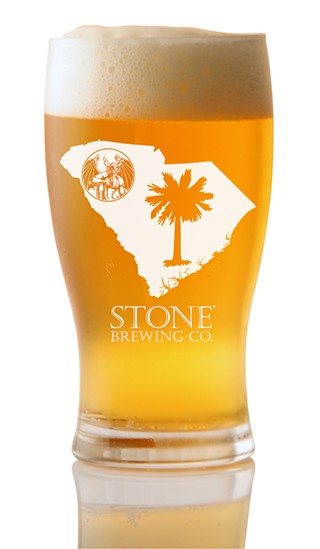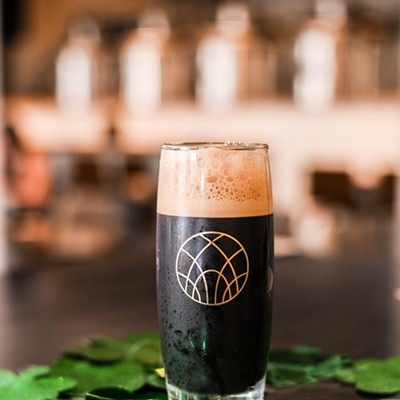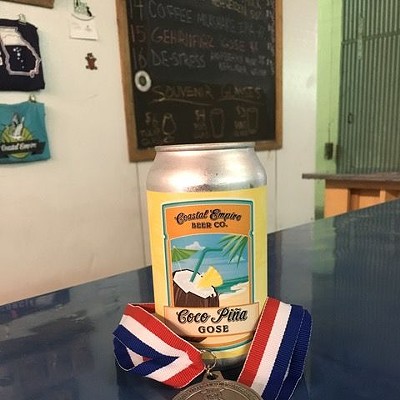South Carolina's craft brewing industry has come a long way in a very short time, and a new law may help the state become a big player in the craft beer market.
Only a few years ago, the state was enforcing an archaic limit of 6.2 percent alcohol-by-volume on all beers sold in the state, effectively excluding it from participating in the leading edge of the current craft beer revolution.
Due to the efforts of the South Carolina Brewers Association, that limit was removed and the brewing industry in the state has taken off, with more than twenty new breweries coming online, creating new jobs, tourist destinations and expanding its regional culinary prominence. Westbrook, River Dog and COAST are producing some of the best beer available anywhere in the world, just across the state line from us in Savannah.
Last summer, South Carolina brewers saw more freedom with the passing of the “Pint Bill”, which allowed breweries to sell pints of site-made beer on premises at the brewery. This additional revenue stream helps small breweries keep their heads above water during lean start up years and helps more well-known breweries attract even more tourists for the opportunity to drink rare brews at the source.
Despite this progress, South Carolina was still behind its neighbor to the north, whose more lenient alcohol laws were drawing big name craft breweries to expand with East Coast presences. New Belgium, Sierra Nevada and Oskar Blues are spending millions of dollars on secondary facilities in North Carolina, creating hundreds of jobs and making the state a true hub of the brewing industry, rivaling the last century’s concentration in locales like St. Louis, Milwaukee and Chicago.
There are currently 29 breweries in South Carolina, compared to a whopping 117 in North Carolina. Asheville has more breweries per capita than any other U.S. city, with roughly one per every 8,000 residents and is colloquially known as Beer City USA.
When San Diego, CA’s Stone Brewing Co. announced plans to open a new East Coast location, South Carolina decided to throw its hat into the ring. Stone is the tenth largest brewery in the country and is known for big, hoppy ales like Ruination IPA and Arrogant Bastard as well as artisanal, experimental beers like Southern Charred, an exquisitely complex barrel-aged American Strong Ale.
For South Carolina to be considered, they needed to meet Stone’s extensive requirements, which meant changing the law yet again. After months of back and forth between the state’s existing craft brewers and distributors, a compromise has been reached and South Carolina is poised to reap the benefits of being one of the most beer-friendly states in the south.
The new law allows breweries to have restaurants on site which is a big deal for Stone, whose World Bistro and Gardens are a large part of the draw at their Escondido and San Diego sites. It also raises the amount of beer that can be sold on premises and allows breweries to sell beer brewed off-site included those made by other beer brands.
With the changes to the law, South Carolina has positioned itself as a serious contender for the new facility, which is expected to bring an immediate impact of 400 jobs and a $31 million investment. Stone has not announced a deal yet for their new location, and there are no guarantees that a South Carolina city will make the cut even with the new standards in place.
But if not Stone, another large craft brewery would be wise to take advantage of the new opportunities afforded in the state.
While the craft brewing climate in South Carolina is improving by leaps and bounds, Florida is still trying to find common ground between brewers and wholesalers. The home of creative, well-respected craft breweries like Cigar City, Cycle and Funky Buddha, some of Florida’s state legislators are looking to add new restrictions to small breweries.
A bill approved by the state senate empowers Florida breweries to sell the popular 64 oz size of growlers in addition to the currently allowed 32 oz growlers. That’s the good news. The bad news is that it also restricts the amount of beer breweries can sell directly to consumers, which would be harmful to bringing in outside investment in new breweries and in allowing the current crop of small breweries to remain in the state as they grow.
This leaves Georgia literally and figuratively in the middle, looking at these two states as potential models for moving forward. The tide has turned in favor of relaxing restrictions on small breweries. Nationally, craft beer grew 13% in 2013, with powerhouse North Carolina growing 30% in number of brewery openings according to the Brewers Association.
Georgia is very far behind progressive states like North Carolina, Oregon and Colorado in terms of craft beer friendly legislation. For example, Georgia is one of only four states that doesn’t allow growler sales (or any beer sales at all, for that matter) at breweries.
The current ability for Georgia breweries to host tours and tastings is a great start; but to be competitive and participate in this field of rapid growth, fans of craft beer need to support their breweries and the Georgia Craft Brewers Guild as they get ready to lobby for more freedom to grow.
This means more jobs, more income for the state in the form of taxes and tourism and, most importantly, more local beer.


























